Why AI in Real Estate Isn't Optional Anymore: A 2025 Guide for Agents
The real estate industry has hit a milestone in AI adoption. Brokerage leaders say 87% of their agents now use AI tools actively.

The real estate industry has hit a milestone in AI adoption. Brokerage leaders say 87% of their agents now use AI tools actively. This marks a 7% jump from last year. Industry experts believe AI could bring $180 billion in value to real estate.
The results speak for themselves. Companies that use AI in real estate have boosted their net operating income by over 10% through better operations and customer experience. AI now helps 82% of agents with their daily work - from writing property descriptions to creating marketing materials. Many professionals still hold back from these tools, and they might miss out on the most important competitive edge.
This piece explains why AI has become everything in real estate success in 2025. You'll learn which tools keep you competitive and how to make them work in your business. The guide offers practical steps to boost your real estate practice, whether you're new to AI or want to get more from your current tools.
The Current State of AI in Real Estate
The real estate industry has seen an amazing move as AI adoption speeds up at record rates. By 2025, age won't matter anymore when it comes to using AI - it's becoming truly mainstream across every age group. The gender gap is closing too, with 87% of male leaders and 82.6% of female leaders now using AI in their brokerages.
Adoption rates among agents in 2025
The numbers tell only part of the story. Real estate leaders now rate AI's value to their business at 5.9 out of 10 (up from 5.0 in 2024). They expect this importance to climb to 7.2—a 22% jump from current levels. Nine out of ten C-suite leaders believe AI will reshape how their workforce operates in the next five years.
This positive outlook shows in business forecasts. About 63% of brokerage leaders expect better profits in 2025, and 72% think they'll handle more transactions.
Most popular AI tools being used today
Property description generators lead the pack of transformative tools, with 85% of agents putting them to work. Other top uses include:
- Content creation (75% adoption)
- Social media management (42% adoption)
- Digital marketing and client communications
Popular platforms like CINC help with AI-powered lead generation, while Top Producer offers farming tools. Offrs provides predictive analytics, and Style to Design handles virtual staging. AI tools that process documents, standardize data, and analyze markets have become vital as agents look for detailed solutions.
Why late adopters are falling behind
Agents who wait to adopt AI face more significant challenges each quarter. They miss out on efficiency gains and fall behind in lead generation, client service, and market analysis.
AI doesn't just improve things anymore—it creates new ways to serve clients. Agents who use AI target better, get more from their marketing money, and find more time to build relationships. One industry expert put it best: AI has moved from a nice-to-have to a must-have, as clients now expect the tailored experiences that only AI-equipped agents can provide.
Essential AI Tools Every Real Estate Agent Needs
Real estate success today depends on choosing the right AI tools to streamline operations and boost client experiences. Industry data shows that agents who use AI technology gain clear advantages in efficiency and client satisfaction. Here are the most essential AI tools every forward-thinking agent should add to their business in 2025.
Property description generators
Property description generators have become crucial for agents wanting to quickly create compelling listings. These AI tools turn simple property details into engaging narratives that grab buyer attention. Agents usually spend 30-60 minutes writing one property description. AI solutions like ListingAI cut this time to just 5 minutes. These tools improve readability with scores above 60 on the Flesch scale and help improve Google search rankings. This matters because most house searches start online.
AI-powered CRM systems
Modern CRM systems now utilize data to reshape client relationships through intelligent analysis. These platforms store and analyze lead and client data while using AI to automate routine tasks, spot trends, and create individual-specific experiences. Top solutions like CINC confirm leads and make client interactions more natural and relevant. Lone Wolf's relationship management platform helps agents focus on leads based on how likely they are to convert. The results show more consistent communication, less work, and better conversion rates.
Virtual staging and property visualization
Virtual staging technology has reshaped how properties appear online. Research shows that virtually staged homes sell 73% faster than non-staged ones and get 25% higher prices on average. Tools like Virtual Staging AI can furnish empty rooms in seconds. This influences 83% of buyers and drives up listing interest. The cost comparison is clear—traditional virtual staging costs USD 20+ per image with 24-48 hour delivery, while AI options give instant results for under a dollar per image.
Market analysis and prediction tools
AI-powered market analysis tools give unmatched insights for making decisions. Platforms like HouseCanary's CanaryAI help investors with property valuation and market forecasting by combining institutional-grade data with AI technology. These tools help spot emerging market trends, predict price changes, and find investment opportunities early. AI models correctly predicted the post-pandemic suburban boom by analyzing remote work trends and housing data. This gave smart agents a clear competitive edge.
How to Start Using AI in Your Real Estate Business
Implementing AI in real estate requires a well-planned strategy instead of blindly following trends. Research shows that 86% of real estate investors see benefits within their first five years of implementation. A solid integration plan makes all the difference.
Assessing your specific needs
Your business needs a clear picture of its challenges before jumping into AI solutions. Start by looking at:
- Tasks that eat up too much time (property descriptions, lead qualification)
- Areas where you need better-informed decisions
- Client interactions that automation could streamline
This evaluation helps you pick AI applications with the biggest payoff. The goal is to boost your human expertise, not replace it. Studies show 90% of companies aim to use AI alongside human experts in corporate real estate within five years.
Selecting the right AI platforms
The right AI tools must work well with your current systems. Industry experts rank integration capabilities at the top when they evaluate AI solutions. Look for:
- Feature set relevance that matches your real estate operations
- Usability and an accessible interface that speeds up learning
- Integration capabilities that blend with your technology
- Performance metrics that line up with business goals
- Value for money beyond just cheap prices
You may want to partner with companies that specialize in AI integration and can develop customized solutions tailored to your needs.
Implementation timeline and budget considerations
Your AI integration budget should cover several key costs. The main expenses include:
- AI algorithm development or customization ($5K-$50K based on complexity)
- Data collection and preparation ($3K-$15K)
- Software integration with existing systems
- Hardware upgrades if needed
- Team training ($1K-$5K)
Step-by-step implementation often works best. Start with a minimum viable product (MVP) that tests core features, then grow based on results. This lets you see quick returns while spreading costs over time. Thoughtful planning and the right partners help you reach your AI goals within budget.
Measuring the ROI of AI for Real Estate Agents
ROI evaluation of AIThoughtful in real estate goes beyond the original costs to focus on measurable outcomes. Specific metrics help agents justify their technology investments and optimize future strategies.
Time savings metrics
AI adoption creates measurable productivity gains. A 2024 HubSpot study found that AI and automation tools save sales teams more than two hours per day on average. Agents can focus on building relationships instead of spending time on administrative tasks with this extra time. Property managers say AI technology could optimize almost one-third of their typical workweek. CAPREIT's office environment has improved after AI started handling routine questions during off-hours, particularly in bigger communities where call volumes are high.
Lead generation improvements
AI makes a big difference in lead generation across many areas. Greystar's in-house study showed that properties using AI lead-warming tools got 31% more follow-ups, 27% more applicants, 37% more tours, and 62% more appointments scheduled compared to properties without AI. AI tools have proven valuable in nurturing prospects throughout their property search. Agents who use AI-powered CRM systems report better conversion rates and lower lead acquisition costs.
Client satisfaction increases
AI improves client experience metrics beyond just making things faster. AI chatbots provide round-the-clock customer support, resulting in faster responses and uninterrupted customer experiences. The system learns about customer priorities, budgets, and lifestyles to suggest properties that match their needs. This individual-specific approach works well - one real estate group achieved 40% higher lead conversion compared to traditional channels. The National Association of Realtors found that 73% of clients would use their agent again or recommend them to others, and this loyalty stems from quick and efficient communication.
The Future With AI
AI's effect on real estate in 2025 tells a powerful story through numbers. Real estate professionals who use AI tools see remarkable results - 40% higher lead conversion rates and save more than two hours each day on routine tasks. The market has evolved to a point where competing without AI seems impossible.
Top brokerages have shown how AI brings results that matter. Their agents save precious time with automated property descriptions and make smarter decisions through AI-powered market analysis. Smart CRM systems help them close more deals. On top of that, virtual staging tools help sell properties 73% faster at lower costs.
Real estate agents who want to grow their digital toolkit with an AI moving platform can now add WeMove AI's affiliate referral program to their services. They earn commissions while their clients get guaranteed full-service moving quotes and bookings.
AI adoption needs proper planning and smart investment. The right tools and proper implementation will bring big returns through better efficiency, more leads, and happier clients. Your success in today's AI-driven real estate market depends on starting small, tracking results, and building on what works.
FAQs
Q1. How is AI transforming the real estate industry in 2025? AI is revolutionizing the real estate industry by enhancing efficiency, improving lead generation, and enhancing client satisfaction. Agents using AI tools report saving over two hours daily on routine tasks, experiencing 40% higher lead conversion rates, and providing more personalized property recommendations to clients.
Q2. What are the essential AI tools for real estate agents in 2025? Essential AI tools for real estate agents include property description generators, AI-powered CRM systems, virtual staging and property visualization tools, and market analysis and prediction platforms. These tools help agents create compelling listings, manage client relationships, present properties effectively, and make data-driven decisions. And a moving platform like WeMove offering guaranteed booking rates using AI.
Q3. How can real estate agents measure the ROI of implementing AI in their business? Agents can measure AI ROI by tracking time savings metrics, lead generation improvements, and client satisfaction increases. Key indicators include reduced time spent on administrative tasks, higher lead conversion rates, more appointments scheduled, and improved client loyalty and referral rates.
Q4. Is it still worthwhile to be a real estate agent in 2025 with the rise of AI? Yes, being a real estate agent in 2025 remains a valuable profession. While AI enhances many aspects of the job, successful agents focus on building strong relationships, leveraging technology effectively, and potentially specializing in niche markets. The human touch in real estate transactions is still crucial, with AI serving as a powerful tool to augment agent capabilities.
Q5. How can real estate agents start implementing AI in their business? To implement AI, agents should first assess their specific needs, select compatible AI platforms that align with their business goals, and create a phased implementation plan. It's important to consider budget constraints, integration capabilities with existing systems, and team training needs. Starting with a minimum viable product and scaling based on results is often an effective approach. To become an affiliate and start earning additional revenue and commission, you can sign up here.

